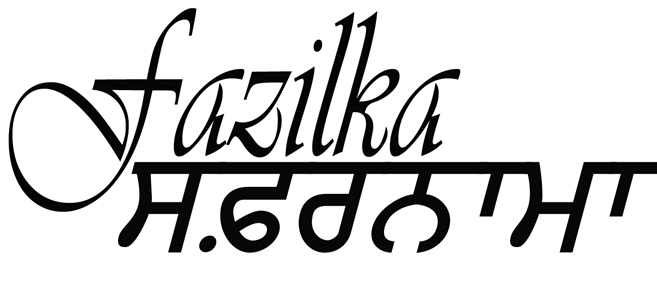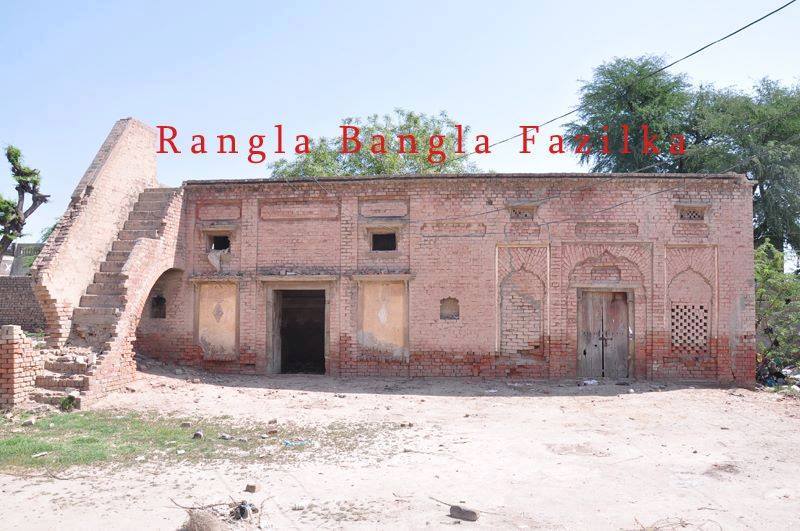वट्टू और बोदला के रीति-रिवाज
वट्टू और बोदला जाति के मुरुलमानों के रीति-रिवाज आपस में मिलते-जुलते थे। उनके विवाह की रस्में इक्सवीं सदी के मुसलमानों से कुछ भिन्न थे। ब्रिटिश साम्राज्य में फाजिल्का के सेटलमेंट अधिकारी रहे जे. विल्सन ने मुस्लिम जाति के रीति-रिवाजों पर बारीकी से जांच की और वट्टू व बोदला जाति के रीति-रिवाजों में समानता पाई। जे. विल्सन के अनुसार मुस्लिम जाति की लडक़ी का पिता लडक़ी का निकाह करता था तो वह लडक़े के परिवार की ओर से अपनी लडक़ी के लिए पैसे की मांग करता था। लडक़ी के निकाह के बाद वह पैसा लडक़ी की जायदाद बन जाती थी। मगर जब ब्रिटिश साम्राज्य में मैरिज एक्ट बना तो ब्रिटिश नियमों में मुसलमानों को पुराने रीत रिवाज निभानें में काफीं मुश्किलें पेश आने लगी। नियम लागू होने के बाद जब कोई मुसलमान लडक़ी-लडक़े का रिश्ता जोड़ता तो उन्हें कानून को सबूत देना पड़ता था। जो बोदला और वट्टू जाति की लडक़ी और लडक़े के पिता के लिए एक नियम बन गया।

नियम अनुसार कोई मुस्लिम परिवार अपने बेटे की शादी करता तो उन्हें गवाह के तौर पर काजी और मौलवी को बुलाना पड़ता था। शादी में इजाब काबुल को सेवा के लिए बुलाया जाता था। जो शादी करने वाले माता-पिता से पूछते थे कि वह अपने बेटे या बेटी के निकाह को तैयार हैं। एक अन्य नियम मुताबिक लडक़े से भी शादी के लिए पूछा जाता था। जब तक लडक़ा शादी के लिए हां नहीं कहता था, तब तक शादी नहीं होती थी। शादी से पहले अगर लडक़े की मौत हो जाती तो लडक़ी को निकाह करने पर विचार करने का मौका नहीं दिया जाता था। बिरादरी में लडक़ी को विधवा घोषित कर दिया जाता था। विधवा घोषित हो जाने के बाद भी रस्में लगातार जारी रहती थी। सगाई के बाद निकाह की रस्में होती रहती और निकाह कर दिया जाता था। निकाह की रस्में दोबारा नहीं होती थी। इन नए रीति-रिवाजों के कारण यह तय हो गया कि लडक़ी का पिता निकाह के समय जो धन लडक़े वालों से लेता था, वह वापस नहीं किया जाता था। यह लडक़ी और लडक़े के पिता के बीच गवाहों के सामने एक समझौता होता था। उसके बाद ही असली रिश्ता होता था। फाजिलका के दूसरे मुस्लमानों की ओर से काजी और मौलवी को बुलाया जाता था। जो नवविवाहित जोडी को आशीर्वाद देते थे। बोदला, वट्टू, भट्टी और जाईया अंगूठी या कोई अन्य सोने का आभूषण साथ देते थे और कपड़े का आदान-प्रदान करते थे। मुंह की मिठास के लिए चीनी या गुड़ दिया जाता था।

ब्रिटिश अधिकारी जे. विल्सन मुसलमानों की शादियों की बारीकी से जांच की और जांच के बाद 1882 ई. में उन्हें मान्यता दी। उनके बनाए गए इस नियम पर फाजिलका और सिरसा में विवादित मामले कम थे। फाजिलका में 9 और सिरसा में सिर्फ पांच फाइले ही विवादित थी।(Lachhman Dost Fazilka)
The marriage is confessed!
Customs of Wattu and Bodla
The customs of the Mulim of the Wattu and the Bodlas were similar among themselves. The rituals of their marriage were a little different from the Muslims of the XX century. Fazilka's settlement officer in the British Empire, J. Wilson examined the customs of the Muslim race closely and found the similarities in the customs of the Wattu and Bodla castes. J. According to Wilson, the father of a Muslim caste used to marry a girl, then she asked for money for the girl's family on behalf of the girl's family. After the marriage of the girl, that money would become the property of the girl. But when the Marriage Act was made in the British Empire, there was a lot of difficulties in the British rules, to the Muslims in ancient rituals. After the rule was enacted, when a Muslim related the relationship of the girl-girl, they had to give evidence to the law. Which became a rule for the father of Bodla and Wattu caste and the father of the girl.
According to the law, when a Muslim family married his son, he had to call Kaji and Maulvi as a witness. Ezab Kabul was called for service in marriage. Who asked the married parents to prepare for the marriage of their son or daughter. According to another rule, the girl was asked for marriage too. Until the boy did not say yes to the marriage, the marriage was not there. If the girl dies before marriage, then the girl was not given the opportunity to consider marrying. The girl was declared a widow in the community. Even after the widow was declared, the rituals continued. After the engagement, rituals of marriage and marriage were done. The rituals of marriage did not repeat. Due to these new customs, it was decided that the girl's father who used to take money from the fighters at the time of her marriage did not return. This was an agreement between the girl and the girl of the girl in front of the witnesses. After that there was a real relationship. Kazi and Maulvi were called on behalf of the other Muslims of Fazilka. Who blessed the newly married couple. Bodla, Wattu, Bhatti and Jaya ring or any other gold ornament
ornaments and used to exchange clothes. Sugar or jaggery was given to sweetness of mouth.
British officer J. Wilson examined the weddings of Muslims closely and after examination he recognized them in 1882. The disputed cases were less in Fazilka and Sirsa on this rule made by them. Only 9 files in Fazilka and 5 files in Sirsa were disputed.












